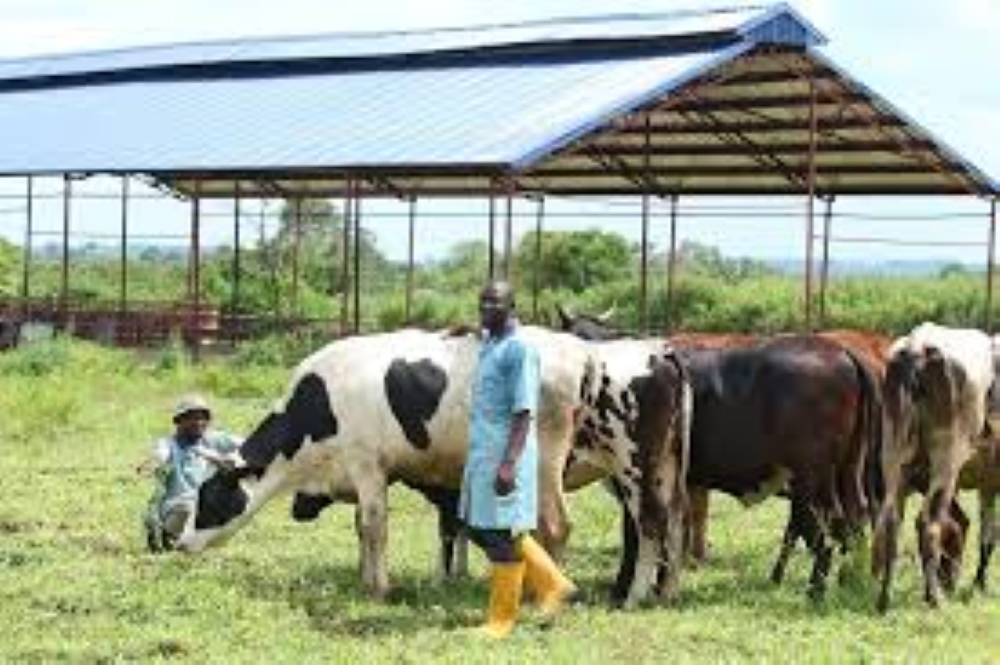The Lagos Chamber of Commerce and Industry (LCCI), a leading advocacy body in the organised private sector in Nigeria, has rolled-out a series of actionable points on how the agriculture sector and the economy can be rejuvenated in the country.
In an address on the state of the economy, the President of LCCI, Mr. Gabriel Idahosa, disclosed that through macroeconomic diagnostics, the chamber highlights areas of concerns and make recommendations to the government on policy alternatives that can better empower the private sector to thrive.
Idahosa added that as we look back at happenings in the second quarter and try to project an outlook for the third quarter of 2024, the global economy continues to experience persistently high inflation, aggressive global monetary policy tightening, supply chain disruptions, and growing uncertainties amidst geopolitical tensions, and that with many institutions reviewing their earlier global economic growth projections, the level of uncertainties had continued to threaten business and economic planning across the globe.
Quoting the Food and Agriculture Organisation (FAO) of the United Nations, the LCCI President informed that the Food Price Index (FPI) maintained an upward trend, reaching 120.6 points in June 2024, unchanged from its revised figure for May. Increases in the price indices for vegetable oil, sugar, and dairy products balanced out a decrease in the price index for cereals, while the meat index was almost unchanged. While inflation rates are easing in the United States of America and China, for instance, Nigeria’s inflation rate continues to rise with no positive projection yet on when it will peak and start to ease.
The Chinese National Bureau of Statistics reported that China’s consumer prices eased by 10bps to 0.2% year-on-year in June, away from 0.3% in May 2024, as the United States headline inflation maintained its downtrend for the third consecutive month, reaching 3.1% year-on-year in June from 3.3% in May 2024, he noted.
On the Gross Domestic Product (GDP) report, Nigeria’s economy grew by 2.98% on year-on-year basis, in real terms in the first quarter of 2024, slightly down compared to 3.46% in the last quarter of 2023, but notably an improvement when compared to 2.31% in the first quarter of 2023 and an annual GDP growth of 2.74% in 2023.
The growth in the first quarter of 2024 is the fourteenth consecutive growth recorded and was driven by both oil and non-oil sectors, which grew by 5.70% and 2.80%, respectively. However, the economy in the first quarter of 2024 was threatened by low productivity growth in agriculture and manufacturing due to insecurity, high cost of production, high inflation, and volatility in the foreign exchange market.
The Q1 2024 GDP report showed that growth in agriculture, Nigeria’s largest single economic sector and employer was very weak, at 0.18% compared to 2.10% in the previous quarter. This reflects a marginal growth of 1.71% in crop production and contributed over 91% of the total output in the sector.
The livestock and fisheries sub-sectors recorded weak performance while expecting to see some improvement in these sub-sectors with the creation of the Ministry of Livestock Development by the Federal Government.
“We urge the government to tackle the problem of insecurity, which has continued to threaten productive activities in the real economy sector. While we appreciate the government’s efforts in fighting all manner of crimes and insurgencies, we believe more can be done until we have a safe environment where farmers can produce and move their goods from farms to markets in certain areas of the country.
We recommend that the Central Bank of Nigeria (CBN) explores alternative policy measures that promote credit access, stimulate investment, and support entrepreneurship. This could include targeted interventions such as concessional lending facilities, loan guarantees, and interest rate subsidies tailored to the needs of (Small and Medium-sized Enterprises) SMEs and key sectors of the economy like agriculture, manufacturing, and power technology”, Idahosa stated further.
The LCCI calls for more direct and targeted interventions in agricultural mechanisation, agricultural research, adoption of lower import duty exchange rates used to import agricultural input, and establishment of more functional agro-industrial hubs across the country.
The body, however, recommends the prioritisation of smallholder farmers and vulnerable groups, including women and youths for targeted assistance; integration of fertilizer distribution with other agricultural value chain interventions, such as improved seeds, irrigation, and post-harvest management; and supporting the development of local fertilizer production capacity to reduce import dependency and enhance long-term sustainability.
The group also stressed the need for the utilisation of information and communication technologies (ICTs) to disseminate agricultural advisory services, market information, and weather forecasts to farmers; empowering of farmer cooperatives and associations to play a central role in distributing and managing subsidised inputs and access to finance; urgent improvement in transportation infrastructure, including road networks, to reduce the cost of transportation and mitigate inflationary pressures across various sectors of the economy; strengthening of agricultural value chains, including establishing adequate storage facilities by promoting agro-processing industries to reduce post-harvest losses and enhance food security.

The LCCI further lauded the Federal Government’s decision to establish the Federal Ministry of Livestock Development, saying this initiative marks a significant shift in Nigeria’s agricultural policy landscape, but that it is imperative to view it from the broader implications for the economy and the business community.
“We call on the subnational governments to replicate this in their domains and reduce the persistent clashes over production locations. Creating a dedicated ministry can provide targeted policies and resources to address specific needs of the livestock sector, potentially leading to increased productivity and efficiency”, as a robust livestock and fisheries sector can boost the agriculture sector’s contribution to our GDP and help curb the record-high food inflation, Idahosa informed.
The performance of livestock and fisheries sub-sectors was very weak, as reported in the first quarter of 2024. “We, therefore, suggest changing the name of the new ministry to the Federal Ministry of Livestock and Fisheries Development, leaving the Federal Ministry of Agriculture and Food Security to focus mainly on crop production. We look forward to a seamless transition of the new ministry into full operations without delays and deploying a prudent mechanism in the face of rising criticism of the high cost of governance.
The chamber urges the government to involve all relevant stakeholders, including farming communities, pastoralists, state governments, and private sector entities in formulating and implementing policies and establishing clear communication channels to ensure transparency and foster stakeholder trust.
In addition, it reiterates the integration of land use policies that balance the needs of pastoralists and farmers, ensuring that both groups have fair access to resources and implement land acquisition and compensation frameworks that respect the rights of indigenous communities and landowners; it encourages the transition from traditional nomadic grazing to modern ranching systems, which can increase productivity, reduce conflicts, and provide incentives for private sector investment in ranching infrastructure, including access to credit, technical assistance, and subsidies.
The LCCI made a case for enhanced security in rural areas to protect both farmers and pastoralists from violence and theft, and the implementation of community policing and conflict resolution mechanisms to address disputes promptly and fairly; and careful plan inclusive policies and sustainable practices essential to ensure this initiative contributes positively to national development and social harmony. It would be recalled that FarmingFarmersFarms recently published an exclusive story titled; ‘Mixed Reactions Trail Livestock Ministry’s Establishment’, where we examined the comments and reactions of stakeholders in the agriculture sector on the creation of the new ministry. Read full story here … https://farmingfarmersfarms.com/2024/07/mixed-reactions-trail-livestock-ministrys-establishment/

